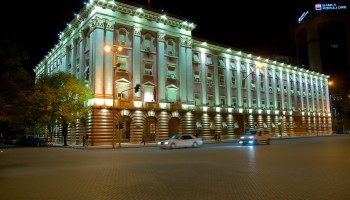The law was proposed in response to a series of political scandals in which MPs with criminal convictions or facing serious charges have been exposed by journalists and political opponents.
These cases include Socialist MP Arben Ndoka, who was convicted for human trafficking in Italy, and Christian Democratic Party MP Mark Frroku, accused by Belgian prosecutors of killing another Albanian in Brussels.
The scandals prompted the international community to press the Albanian government to pass laws to ban individuals with criminal records from holding public office. Donald Lu, US Ambassador to Tirana, has expressed concerns on the issue multiple times, according to BIRN.
The Albeu news agency reported that this week during a parliamentary group meeting of the country’s main opposition party, the Democratic Party of Albania, leader Lulzim Basha expressed optimism over the proposed legislation. “The bill is a major step that creates legal opportunity to cure this big wound in our country,” he said.
"On Dec. 8, Albanians must gather to take their fate in their hands,” he said. “The bill is a big step forward."
However, some observers doubt whether the law would be effective if it passed.
“This law touches just some of the symptoms of Albania politics but it doesn’t cure the disease,” Neritan Sejamini, a media analyst and political sciences lecturer at Tirana University, told BIRN.
“The whole political system in the country is dominated by autocracy, corruption and criminality and even if we are not going to have any more MPs with criminal records, the criminals outside Parliament will influence them.”
The law permanently bans convicted criminals from holding public office if they have committed serious offenses such as murder, rape and genocide, but it will impose minimum periods for those convicted of lesser offenses.
Anyone with convictions requiring jail terms of up to two years will be banned for 10 years but a government official found guilty of corruption would be banned from public office for 20 years.
Any Albanian citizen currently facing trial or wanted on international arrest warrants would also be barred.
If the law is passed, all public service employees, from MPs to members of the state’s security forces, will be subject to criminal background checks.






